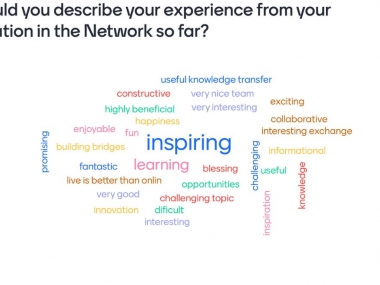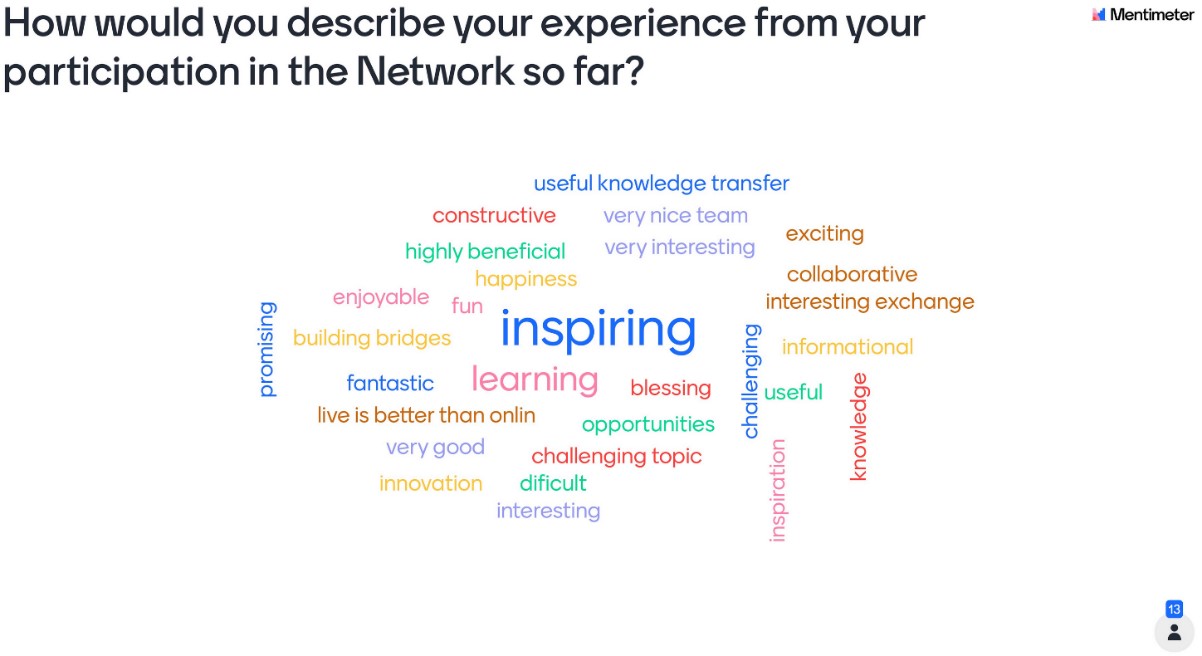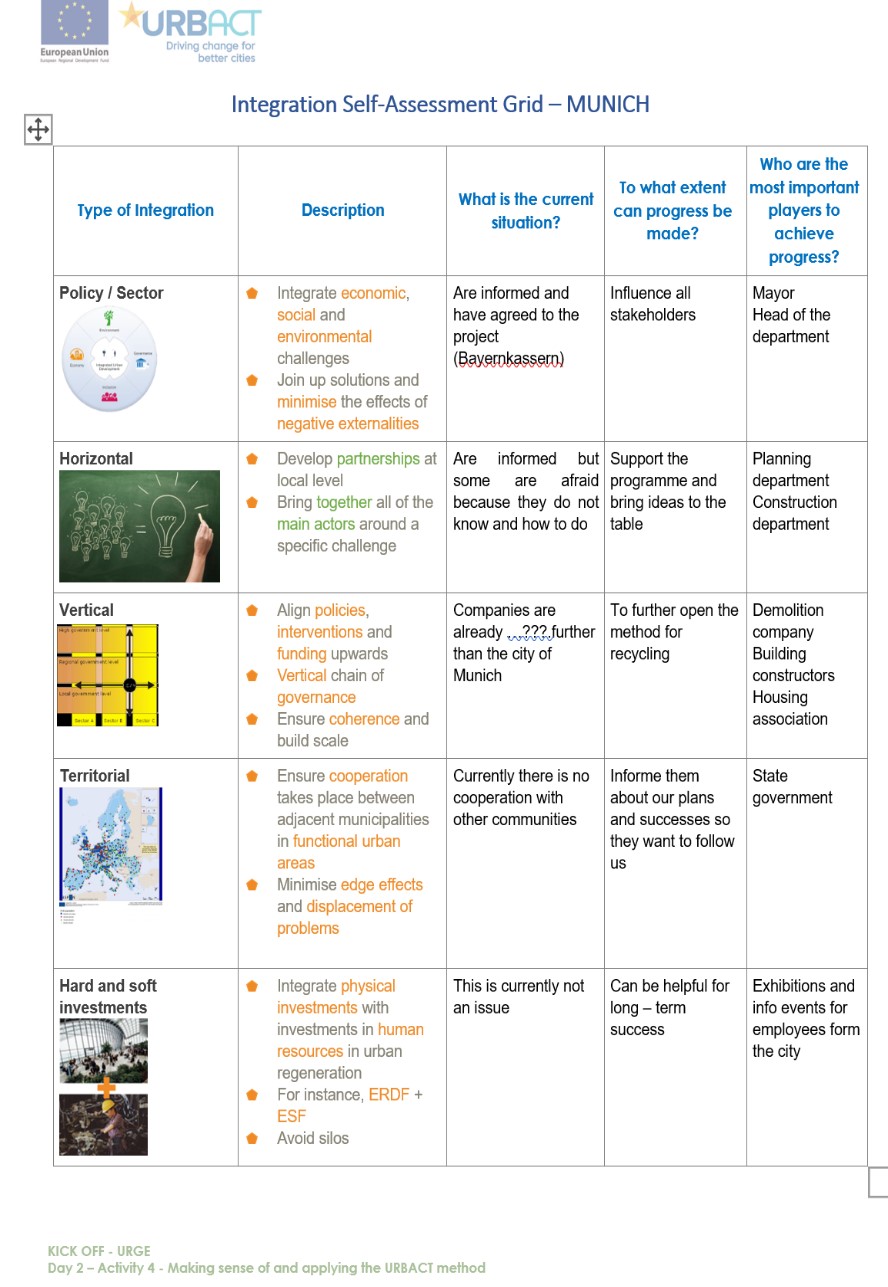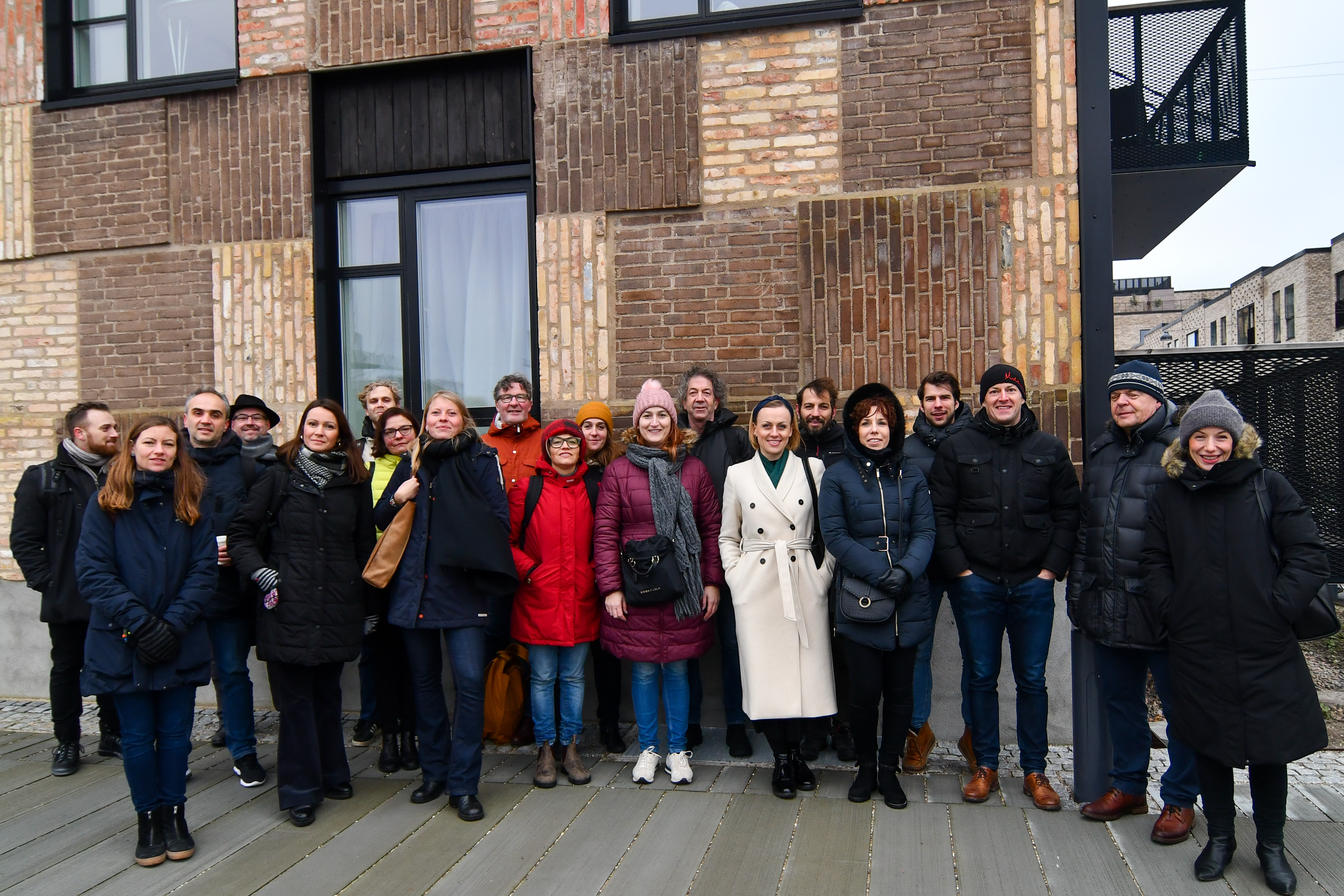URGE’s mid-term reflection highlights
Edited on
21 May 2025This mid-point article highlights achievements from the URGE APN mid-term reflection process, covering the first year of the Network activities: June 2020-June 2021. The reflection process started in June 2021 and was concluded in November 2021. The outcomes of the process shape the activities for the remainder of the project (January - August 2022).
By Eleni Feleki, URGE APN Lead Expert

Pause and Reflect!
The MTR process was composed of three steps:
- MTR Survey launched to the URGE partners (Summer 2021).
- MTR meeting held to provide feedback on the survey results and address remaining needs, challenges and risks (November 2021).
- MTR Report, capturing any newly emerging needs to be addressed through an updated work pan (November 2021).
As an outcome of the MTR process, an updated workplan is desgiend, also reflected in the reprogramming request.
URGE experience so far
The ULG coordinators are the core team of URGE since the beginning of the project. They are the ones that are acting as intermediaries between the project coordination team and their local stakeholders. Their role was and still is neuralgic to the project and none could better describe the experience from the participation in the Network better than them. As part of our reflection, we have opened this question to the ULG coordinators. The results are depicted in the figure below and are very promising for the remainder of the project.

Word cloud on URGE experiences
Highlights
- Political support plays an important role for the delivery and implementation of IAPs.
- Small scale activities boost political support and raise interest in the topic. More than that, small scale activities can demonstrate the usefulness of the concept and support funds raising.
- It is challenging to keep the interest of the ULG members high in a digital environment. It is even more challenging, when the meet the need of addressing integration.
- Shorter, focused meetings are more effective than larger ones in terms of keeping ULG members interest high. A combo-approach, having the ULG meetings in UFG (URBACT Focus Group) meetings’ intervals, works well.
- Addressing integration early in the project (beginning of Phase 2) was a wise thing to do. ULGs were composed having in mind which institutions should be involved from different integration types, in order to help the cities towards their transition.
- Digital study visits help to keep the interest of the ULG members high. Of course, digital exchanges cannot possibly fully replace the usefulness of physical on-site visits.
- Tools and methodologies provided by the Lead Expert, following the URBACT tools and the intervention logic model ranged from very to extremely useful for the URGE partners.
- Structured peer to peer exchanges between partners in break out rooms during transnational meetings is extremely helpful.
- Decision is taken to hold a joint peer review session with Resourceful Cities Network.
- Decision is taken to hold a study visit in Copenhagen in April 2022.
- Decision is taken to draft political recommendations for boosting circular economy in the building sector, as the URGE Final Network Product.
- Gender equity and digitalisation need to be better embedded in the IAPs
Keeping the ULG members active in a digital environment: A real challenge
The covid-19 outburst was definitely a catalyser for URGE, in the sense of engaging, motivating and keeping the interest of the ULG members high. The challenge to keep the ULG members interested and engaged in the project was not discussed for the first time during the MTR session. It has been an emerging topic always, in every morning health check during our transnational meetings. But the MTR session was definitely a good occasion to look back and see what we could have done differently in terms of ULG meetings’ organisation and implementation. The partners agreed that small, targeted sessions with the local experts were more helpful than organising only larger-scale ULG meetings.
 Reflection on integration: Start early!
Reflection on integration: Start early!
Knowing very early in the project that we need to develop ULG groups addressing all different types of integration (sectorial, horizontal, vertical, territorial, hard and soft) was really helpful.
Meeting the need of integration called for the establishment of wide ULG meetings that reassured having everyone that can deliver change on board. This created the need of a larger pool of people involved, keeping always in mind their specific expertise and or area of authority.
However, at the end, smaller working group meetings seem to work better. At the end, it is not only a matter of having one representative from each integration category in the ULG meetings, just to follow the ‘’rules’’. Having the real experts/ the real change makers per topic under discussion, was the most important issue.
This is why in URGE, a combo-approach, between smaller and wider ULG meetings was most effective. Even bilateral discussions with ULG members, in prior to the implementation of the smaller and wider group meetings, were helpful for some partners.
Mitigating our risks: A realistic plan ahead
In general, the changes in the work plan are minor. The knowledge transfer methodology remains the intact. The risks and remaining needs as well as the plan agreed to mitigate them, are depicted in below.
Mitigation plan to meet needs in terms of thematic exchange
- Session focused on digitalisation and gender equity
- Design of the Final Network Product to raise political recommendations that all cities can use to really become change-makers
- Organisation of an on-site visit to Copenhagen to maximise knowledge exchange
- Competence building (reflecting the theme of Human Resources) in the frame of the meeting in Kavala (May 2022)
Risks mitigation plan
- Continuation of peer reviews, in smaller groups
- Organisation of joint peer to peer activity with the cities of the Resourceful Cities Network
- Additional support for the finalisation of the IAPs (on top of the Lead Expert’s support)
- Organisation of an on-site visit to Copenhagen to support engagement of missing stakeholders and to enhance capacities
- Organisation of a side event in Copenhagen, with the participation of political representatives from the URGE partners
- Working in smaller groups in the intervals of the wider ULG meetings in order to keep the engagement of stakeholders and co-design of the agendas for the transnational meetings in Granada and Kavala to make sure that their remaining needs are satisfied
Tight timescales and lack of funds/resources
Risks linked to tight timescales and lack of funds/ resources will be curated at the Programme level. URGE cities have introduced SMART actions, however support will be seeked in terms of implementation of the actions following the time plan. Referring to need to raise funds and secure resources to put the SMART actions to the next level, URBACT has already published recently ‘’An overview on Cohesion Policy: Opportunities for your cities’’, which has been shared with the URGE partners.
URGE partners collective intelligence

Group photo of the URGE consortium in Copenhagen, January 2020
- Utrecht: Building high with wood, working in a regional approach; planning of actions using Scrum methodology.
- Copenhagen: Material Depeche: Regional collaboration to link supply of materials with demand
- Prato: A strong governance model, starting from the urban strategy, going through the urban agenda and put in practice through pilot projects, like the selective demolition of the old hospital and the reuse of materials
- Nigrad: Focus on integration and excellent use of synergies and relevant outputs produced using funds raised by different Cohesion Policy instruments, aiming to implement the local strategy on circular economy
- Riga: Design and implementation of a series of small scale actions (establishment of an exchange point, drafting of guidelines for circular constructions and green procurements) to raise political interest and support. Several small actions were put in practice.
- Munich: Decision to introduce a City Resolution, aiming to put the pilot project: Bayernkaserne’’ into action. After that, the political support to URGE was already achieved.
- Kavala: Cutting-edge, innovative, for the Greek reality Small-scale action with a focus on funds raising and incentivisation through putting forward public procurements, tested in the frame of a cutting-edge, innovative, for the Greek reality, small scale action
- OesteCIM: Regional collaboration to map flows of materials
- Granada: Small-scale action on awareness raising and capacity building
What’s next?
The small-scale activities uptaken by Riga, Kavala, Nigrad and Granada will be concluded next year. In addition, experimentation held in the frame of URGE using external funds is being conducted in Munich (Bayernkaserne project) and the results will feed the project.
Stay tuned! An article dedicated on small scale activities and experimentations’ results is upcoming next year. The Final Network Product will be finalized by mid-May 2022 whereas the nine IAPs, will be ready by June 2022!
Curious to follow our progress so far?
URGE has been generous in producing communication outputs, aiming to share knowledge, experiences, practices. Additional resources:
- City videos
Eight city videos are delivered introducing the URGE cities’ local circular situation, local challenges related to circularity and their circular aspirations. Available here: Copenhagen, Prato, Munich, OesteCIM, Kavala, Riga, Granada, network wide introductory video.
- Case studies
The case studies dive into a circular construction practice of the URGE cities and the learnings thereof. The case studies focused on a wide variety of themes:
- Promotion of eco-centres: OesteCIM
- Creating circular districts: Munich
- Citizen engagement for circular gardens: Copenhagen
- Circular reuse of industrial heritage: Prato
- Production of recycled concrete: Nigrad
- Circular construction project: Utrecht
- Interviews and Thematic Reports
Interviews with a local ULG member or representative of the URGE cities were delivered to illustrate the progress taking place and show the added value of (EU) collaboration and knowledge exchange. In addition, thematic reports and articles have been published to disseminate the knowledge gained. These materials are available in the project website.
Additional digital on-site visits:
- Circular construction in the new district Bayernkaserne in Munich
- The transition to a circular economy in Riga
- Saving buildings from destruction in Riga
- Riga's steps towards sustainability and circular economy
- Construction material exchange point at Čiekurkalns in Riga
- Production of circular construction materials in Riga
- Circular design guidelines in Riga
- Building through construction and demolition waste in the West region of Portugal
- Reuse of construction materials at Peterspladsen in Copenhagen
- Analyzing the building stock through Multi Criteria Decision Making in Copenhagen
- Screening for circular construction opportunities in Copenhagen
- Recycling at Sydhavn's recycling center in Copenhagen
- Reuse of soil at Nordhavn in Copenhagen
- Design and repurposing in circular construction in Copenhagen
- Selective demolition of the old hospital in Prato
- Urban regeneration creative district Macrolotto Zero in Prato
- Stakeholders for circular construction in Prato: Construction Federation Confartigianato Toscana
- Stakeholders for circular construction in Prato: Order of Prato Engineers
- Stakeholders for circular construction in Prato: Building contractor Edilizia Naturale
- Stakeholders for circular construction in Prato: Environmental organization Legambiente Toscana
- Stakeholders for circular construction in Prato: Order of Prato Architects
- Stakeholders for circular construction in Prato: CNA Construction Section
Submitted by Anonymous on
